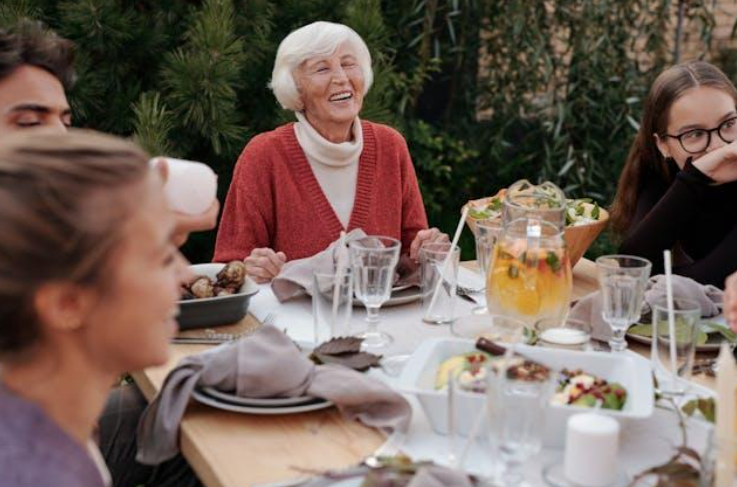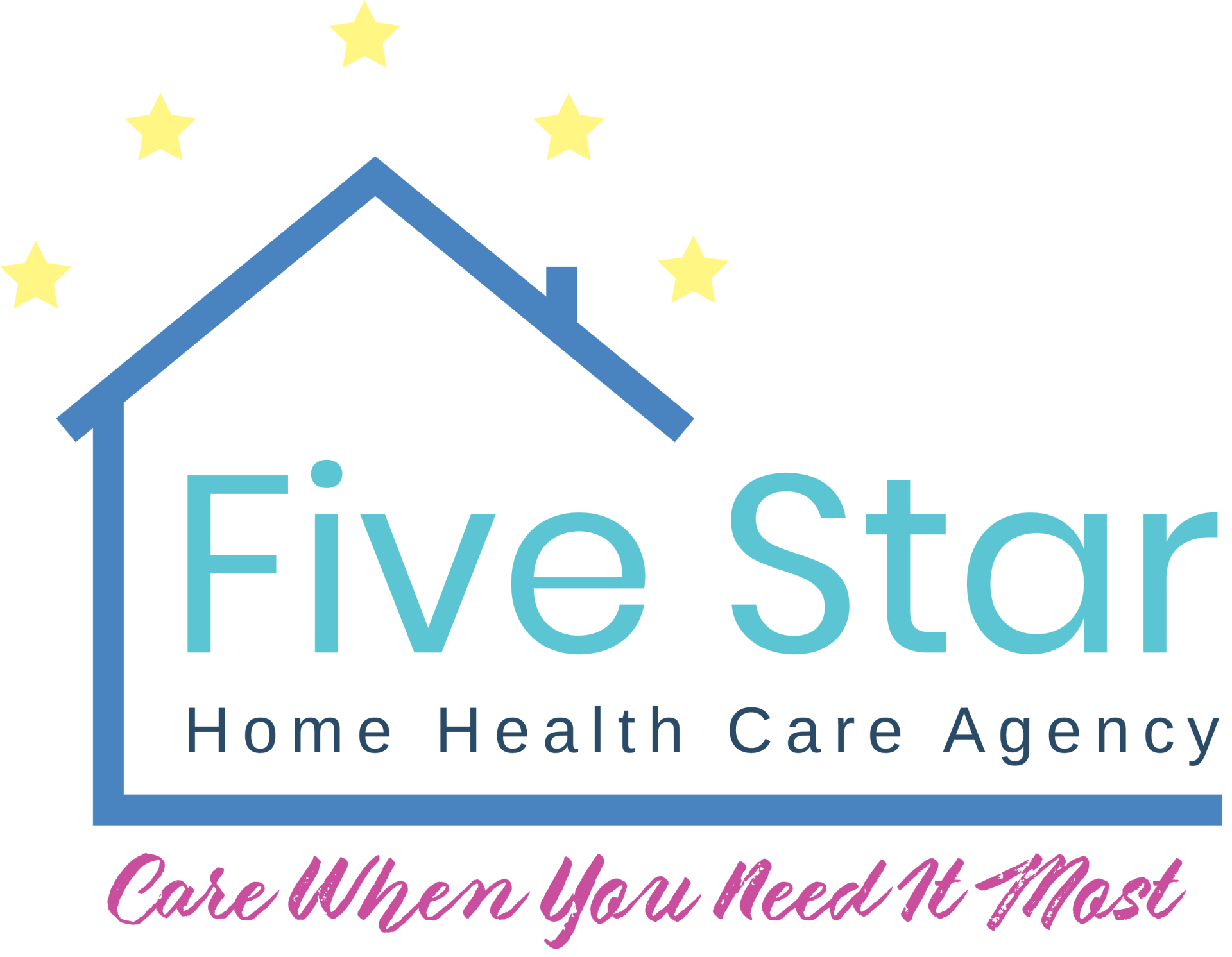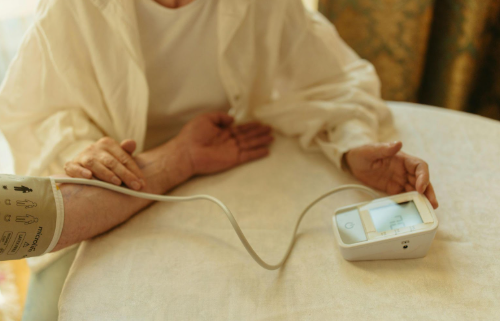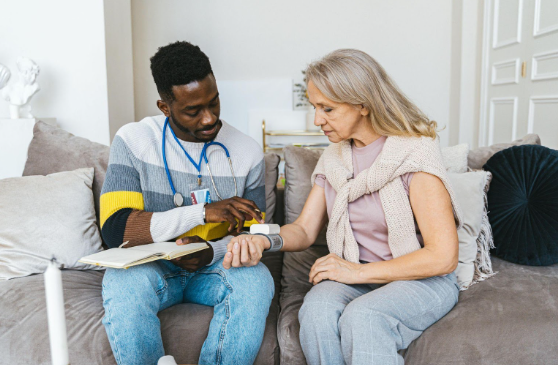Caring for Aging Loved Ones: How Home Health Services Support Seniors’ Independence

As our loved ones age, maintaining independence becomes a central concern for seniors and their families. The desire to live autonomously, in the comfort of one's own home, is a common aspiration among older adults. Home health services offer professional care that helps seniors age safely at home while preserving their dignity and quality of life.
Why Independence Matters for Seniors
Being able to make personal choices, follow familiar routines, and live in a comfortable environment contributes to mental and emotional health. When seniors retain their independence, they often experience lower stress levels, better cognitive function, and a greater sense of purpose.
However, as mobility declines or health conditions progress, performing everyday activities can become challenging. Without proper support, they may face increased risks of falls, malnutrition, and isolation.
Understanding Home Health Services
Home health services encompass a broad spectrum of medical and non-medical care provided in an individual's residence. These services are tailored to meet seniors' unique needs, ranging from medical treatments to assistance with daily activities. These plans comprehensively address daily living and health management. This includes:
- Activities of Daily Living (ADLs): Assistance with essential tasks such as bathing, dressing, grooming, toileting, and eating so that seniors can perform daily routines safely and comfortably.
- Instrumental Activities of Daily Living (IADLs): Support with complex activities like meal preparation, medication management, housekeeping, and transportation enhances autonomy and quality of life.
- Health Monitoring: Regular assessments and monitoring of vital signs help in the early detection of potential health issues, allowing for prompt medical intervention.
How Home Health Services Promote Seniors’ Independence
One of the greatest benefits of home health services is that they help seniors maintain their independence rather than having to transition to institutional care. Here’s how:
Personalized Care Plans
Unlike standard facility care, home health services are personalized to each senior’s needs. Caregivers assess a senior’s health conditions, preferences, and lifestyle, then create a customized plan that adapts as their needs evolve. This personalized approach makes sure seniors receive the right level of care while still enjoying as much autonomy as possible.
Safety and Fall Prevention
Falls are a leading cause of injury among seniors, often leading to long-term disability or hospitalization. Professionals assess the home environment for potential risks and suggest modifications such as grab bars, better lighting, or rearranged furniture to reduce hazards. They also help seniors build strength and balance through exercises that prevent falls.
Medication Management
Many seniors take multiple medications, which can be difficult to manage without professional help. The trained nurses assist in organizing prescriptions, checking that proper dosages are taken on time, and monitoring for potential drug interactions. This reduces the risk of complications caused by missed or incorrect medication usage.
Chronic Disease Management
For seniors with conditions such as diabetes, heart disease, or respiratory illnesses, consistent medical care is crucial. These personalized home care services provide regular monitoring and education, helping seniors manage symptoms and avoid any complications.
Rehabilitation and Recovery Support
Seniors recovering from surgery, illness, or injuries often benefit from in-home rehabilitation services. Physical therapists help restore mobility, while occupational therapists assist with regaining independence in daily activities. Receiving therapy at home eliminates the need for transportation to outpatient clinics and allows for a more comfortable recovery process.
The Emotional and Social Impact of Home Health Services
Many seniors experience loneliness, particularly if they live alone or have limited interaction with family and friends. Home health services provide companionship and social support, making sure that the seniors remain engaged and connected.
Caregivers often assist with hobbies, encourage participation in social activities, or simply offer friendly conversation. For seniors with cognitive decline or early-stage dementia, structured activities and consistent interaction can help slow mental deterioration and improve overall well-being.
Relief for Family Caregivers
Family caregivers often juggle multiple responsibilities, including work and personal obligations, which can lead to burnout. Home health services provide comprehensive support systems to ease these challenges, so caregivers can offer quality care while maintaining a healthy balance of their own health and well-being.
Respite Care
Temporary professional care allows family caregivers to take breaks, preventing burnout and ensuring they can maintain a sustainable caregiving routine. Short-term or overnight care options provide flexibility, whether for work, personal time, or emergencies.
Specialized Training & Education
Hands-on workshops and virtual training sessions equip caregivers with essential skills, from medication management to mobility assistance and emergency response. This means they can confidently handle their loved one’s needs while reducing stress and uncertainty.
Emotional & Mental Health Support
Home health services offer caregiver support groups, one-on-one counseling, and stress management programs to help family members process emotions, cope with anxiety, and prevent caregiver fatigue.
Care Coordination & Advocacy
Professionals assist in managing doctor’s appointments, insurance paperwork, and long-term care planning, reducing the overwhelming administrative burden on family members.
Technology Integration for Easier Care
By integrating technologies, caregivers and healthcare professionals can stay connected, ensuring seniors receive timely care and support when they need it most. Telehealth services provide easy access to medical advice from home, reducing hospital visits and helping manage chronic conditions.
Wearable health devices track vital signs, activity levels, and medication schedules, allowing healthcare providers to detect issues early and respond quickly. Smart home systems, such as fall detection sensors and automated lighting, enhance safety and independence, giving seniors confidence in their daily routines.
Our Exclusive Home Health Services for Senior Independence
By integrating these services, we create a holistic care plan that respects each senior's desire for autonomy while ensuring their health and safety are prioritized. Our specialized services for seniors' loved ones include:
- Home Health Aides (HHAs): Our certified HHAs assist with daily activities such as bathing, dressing, and meal preparation, so seniors can continue their routines safely and comfortably.
- Personal Care Aides (PCAs): Our PCAs provide non-medical support, including light housekeeping, shopping, laundry, and running errands, helping to maintain a tidy and organized living environment.
- Registered Nurses (RNs): Our licensed RNs deliver medical services like wound care, medication management, and health assessments, addressing complex medical needs with professionalism and compassion.
- Physical Therapy: Our physical therapists develop personalized exercise programs to improve mobility, strength, and balance, aiding in recovery from injuries or surgeries and promoting overall physical health.
- Medical Social Workers: Our social workers offer counseling and connect seniors with community resources, providing emotional support and assistance with navigating healthcare systems.
Taking time to choose the right provider for your loved one can be a tough task. We, at
Five Star Home Health Care Agency, offer you trustworthy and competent home health services with accredited caregivers. Our professionals work together with you to keep your independence unhindered.
Contact us today!










